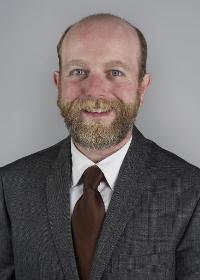Dr. Benjamin Zendel
 Canada Research Chair in Aging and Auditory Neuroscience
Canada Research Chair in Aging and Auditory Neuroscience
Phone: 709-864-6080
Email: bzendel@mun.ca
Research involves
Examining the impact of aging and training on hearing and the associated neurophysiological responses
Research relevance
This research will serve as a foundation to develop auditory rehabilitation programs that can improve hearing abilities in older adults.
No need to say it again: improving hearing in older adults
Hearing difficulties are one of the most commonly reported health issues in older adults and are related to depression, anxiety and even cognitive decline. In noisy environments, like a restaurant, a party or walking down a busy street, the brain has the difficult task of isolating and understanding speech in the presence of background noise. As we age, understanding speech in noisy environments becomes increasingly difficult.
As the tier 2 Canada Research Chair in Aging and Auditory Neuroscience, the goal of Dr. Zendel’s research program is to improve hearing abilities in older adults. He is investigating the impact of age on how the brain processes both speech and music. Past work by Dr. Zendel demonstrated that older, lifelong musicians are better at understanding speech in background noise compared to non-musicians. In fact, the average 70-year-old musician can understand speech in a noisy environment as well as the average 50-year-old non-musician. To translate this finding into something that can benefit all Canadians, he is examining if there is a causal link between music training and enhanced hearing in older adults.
To focus the clinical utility of musical training, Dr. Zendel is using electroencephalography (EEG), housed within the Cognitive Aging and Auditory Neuroscience Laboratory (CAANLab), to identify neural functions related to processing speech and music in older adults. He is also isolating what components of musical training lead to neural enhancements in the processing of speech and music. With this knowledge, Dr. Zendel will provide an evidence-based foundation to develop auditory rehabilitation programs that can be used by older adults to improve their hearing and to promote healthy aging.